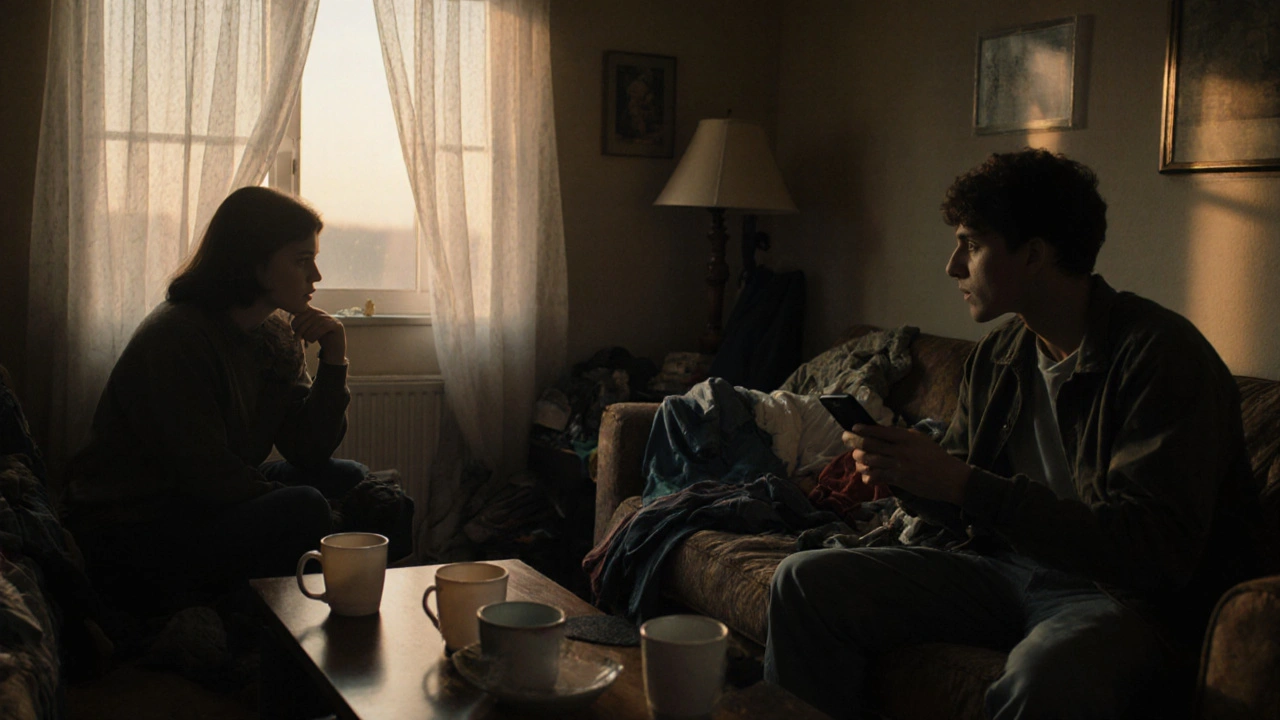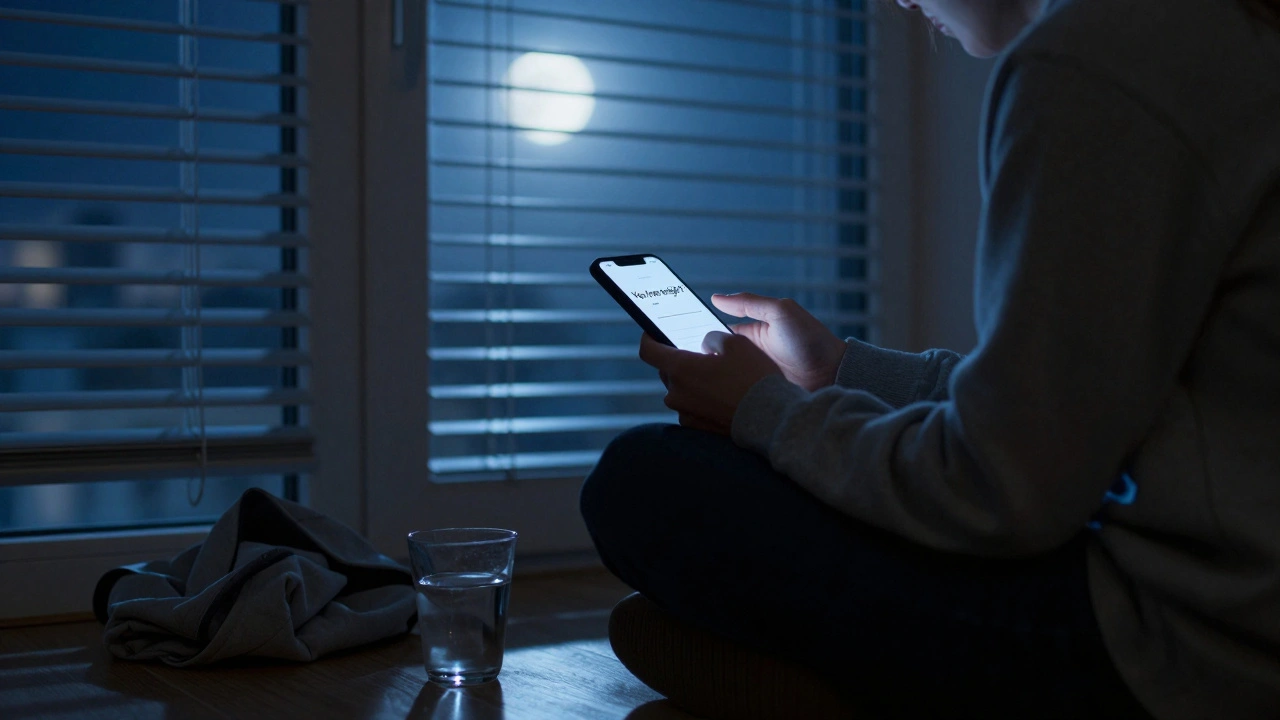You’ve probably thought about it. Maybe you’ve done it. Or maybe you’re wondering if you should. A one night stand isn’t just a punchline in a movie or a whispered confession at a bar-it’s a real, complicated part of modern adult life. And if you’re considering one, you deserve more than gossip or shame. You deserve clear, honest, practical info-no judgment, no fluff.
What Exactly Is a One Night Stand?
A one night stand is a sexual encounter between two people who don’t have an ongoing romantic relationship and don’t expect one afterward. It’s not dating. It’s not flirting with benefits. It’s not a rebound. It’s a single, consensual, physical interaction-usually with no strings attached.
That doesn’t mean it’s simple. People have one night stands for all kinds of reasons: loneliness, curiosity, celebration, revenge, boredom, or just wanting to feel desired. Some walk away feeling empowered. Others feel hollow. The outcome rarely matches the expectation.
Why People Do It-and Why It Often Backfires
Let’s be real: the fantasy is easy. You meet someone attractive. Chemistry sparks. You end up back at their place. The next morning, you part ways with a smile and a thank you. Clean. Casual. No drama.
The reality? It’s messier.
Studies show that over 60% of people who have one night stands report feeling regret afterward-not because of the act itself, but because of what it revealed about their emotional state. Were you trying to fill a void? Avoid a hard conversation? Prove something to yourself or someone else?
One woman in London told me, “I thought I was being bold. Turns out I was just lonely.” She didn’t regret the sex. She regretted not asking herself why she needed it so badly that night.
Another man, 38, said, “I thought I was above emotional baggage. Then I found myself texting them three days later.”
One night stands don’t always stay in one night.
When It Works-And When It Doesn’t
There’s no universal rule. But here’s what tends to work:
- You’re emotionally stable and not running from something
- You’ve had an honest conversation about boundaries before anything happens
- You’re clear on your own intentions-and you’re okay with theirs being different
- You’re sober enough to give real consent
- You’re prepared for the possibility of awkwardness the next day
Here’s what usually goes wrong:
- One person thinks it’s the start of something
- There’s no talk about protection or STI status
- Alcohol or drugs cloud judgment
- You’re doing it to feel validated
- You don’t know how to say no-or how to walk away
The difference isn’t about the act. It’s about the mindset.
How to Decide If It’s Right for You
Before you say yes to anyone, ask yourself these five questions:
- Am I doing this because I want to, or because I’m afraid of being alone?
- Have I clearly communicated what I’m expecting-and listened to what they’re expecting?
- Do I know their STI status-or have we agreed to use protection regardless?
- Will I feel okay about this tomorrow, next week, or when I’m telling a friend?
- Am I okay with the possibility that they might not text back?
If even one answer makes you uncomfortable, pause. There’s no shame in waiting.

How to Stay Safe-Physically and Emotionally
Safety isn’t just about condoms. It’s about boundaries, awareness, and self-respect.
Physical safety:
- Always use protection-condoms, dental dams, PrEP if you’re at higher risk
- Don’t skip STI testing. Get tested before and after casual encounters
- Meet in a public place first. Don’t go back to someone’s place on the first date unless you’re certain
- Let a friend know where you are and who you’re with
- Trust your gut. If something feels off, leave. No explanation needed
Emotional safety:
- Don’t confuse physical intimacy with emotional connection
- Don’t use sex to avoid dealing with sadness, anger, or anxiety
- Be ready to walk away-even if it’s awkward
- Don’t feel pressured to stay in contact afterward
- Journal afterward. Write down how you felt before, during, and after. It helps you learn
One night stands can be empowering-if you go in with your eyes open.
Common Myths About One Night Stands
Let’s clear up some noise:
- Myth: “Only promiscuous people do this.” Truth: People from all walks of life-married, single, religious, atheist, introverted, extroverted-have had one night stands. It’s not a character test.
- Myth: “It’s always fun.” Truth: Sometimes it’s boring. Sometimes it’s painful. Sometimes it’s just... quiet.
- Myth: “You can’t get emotionally attached.” Truth: Your brain releases oxytocin during sex. That’s the bonding hormone. You can’t control that.
- Myth: “Everyone’s doing it.” Truth: Surveys show only about 30% of adults have had a one night stand in the past year. It’s not the norm-it’s a choice.
One Night Stand vs. Casual Dating: What’s the Difference?
| Aspect | One Night Stand | Casual Dating |
|---|---|---|
| Expectation | No follow-up | Regular but non-exclusive meetings |
| Communication | Minimal, usually after the fact | Regular texting, plans, check-ins |
| Emotional involvement | Intentionally avoided | May develop gradually |
| Duration | One event | Weeks or months |
| Protection | Always agreed upon upfront | Often discussed, but may be assumed |
Casual dating can turn into something more. A one night stand is meant to end at sunrise.

What to Do After
The morning after is where most people get stuck.
If you feel good? Great. Let it go. Don’t overthink it. Don’t text unless you genuinely want to. And if you don’t? That’s okay too.
Don’t punish yourself. Don’t label yourself. Just ask: What did this teach me?
Some people use one night stands as a way to rebuild confidence after a breakup. Others use them to test their boundaries. Both are valid-if you’re honest with yourself.
If you’re feeling shame, guilt, or confusion? Talk to someone. A therapist, a trusted friend, a support group. You don’t have to carry it alone.
Frequently Asked Questions
Is it okay to have a one night stand if I’m single?
Yes-if you’re emotionally ready and you’re not using it to escape something deeper. Being single doesn’t mean you owe anyone sex, and it doesn’t mean you have to be celibate. Your choices are yours alone. Just make sure they’re yours, not someone else’s expectations.
How do I bring up protection without killing the mood?
You don’t have to kill the mood-you just have to be direct. Try: “I care about us both staying safe. Do you have a condom?” Or: “I’m on PrEP, but I still use condoms. Are you cool with that?” If they react badly, that tells you more about them than you need to know.
Can a one night stand turn into something more?
It can-but it shouldn’t be the goal. If you’re hoping it becomes a relationship, you’re not having a one night stand. You’re having a date with potential. That’s fine. Just don’t call it a one night stand if you’re secretly hoping for more. Honesty starts with yourself.
What if I regret it later?
Regret doesn’t mean you made a mistake. It means you learned something. Maybe you realized you need more connection than you thought. Maybe you saw how alcohol affected your choices. That’s not failure-that’s growth. Be kind to yourself. You’re not broken. You’re human.
Are one night stands more common now than before?
Yes, but not as much as pop culture suggests. A 2024 UK survey found that 28% of adults aged 18-35 had a one night stand in the past year-up from 19% in 2010. But the majority still haven’t. It’s becoming more visible, not more normal. Visibility doesn’t equal necessity.
Should I tell my partner if I’ve had one?
If you’re in a monogamous relationship, honesty is usually the best policy-but timing matters. If it happened months ago and you’ve moved on, you don’t owe them a confession. If it happened recently and you’re still thinking about it? That’s a sign you need to talk. Secrets fester. Truth, even hard truth, builds trust.
Final Thought: It’s Not About the Sex. It’s About You.
A one night stand isn’t a milestone. It’s a mirror. It reflects what you’re feeling, what you’re avoiding, what you’re hungry for. It doesn’t define you. But it can reveal you.
If you choose to have one, do it on your terms. With your boundaries. With your safety. With your self-respect.
And if you decide not to? That’s just as valid.
You don’t need permission to explore your sexuality. But you do owe yourself honesty.





6 Comments
Marie Elizabeth
Just wanted to say this guide is one of the most balanced, non-judgmental takes I’ve ever read on this topic. So many articles either shame you or act like it’s all fun and games. The part about oxytocin and emotional bonding? That’s the truth no one talks about. Thank you for writing this with such care.
Danny van Adrichem
Let me break this down for you real quick - this whole ‘one night stand’ movement is just corporate capitalism’s way of normalizing emotional detachment so people stop demanding real relationships. Big Pharma pushes PrEP, dating apps push hookups, and suddenly we’re told it’s ‘empowering’? Nah. It’s a distraction tactic. They don’t want you to be lonely - they want you to be distracted enough to keep scrolling, spending, and never asking why you feel empty after. Wake up. This isn’t freedom. It’s algorithmic sedation. 🤖💔
Nishad Ravikant
Interesting read. I’ve had a few one-night stands in my 20s - mostly when I was moving cities and felt disconnected. The part about journaling afterward really resonated. I started writing one sentence each morning after: ‘How did I feel before? During? After?’ It changed how I saw myself. Not every encounter was bad - but every one taught me something about what I really needed.
S.l F
With the utmost respect for the thoughtful tone of this article, I would like to respectfully offer a supplementary perspective rooted in cultural context. In many South Asian communities, the concept of casual sexual encounters remains deeply stigmatized, yet the underlying emotional needs - connection, validation, release - are universal. While the framework presented here is excellent for Western audiences, it may require adaptation for those navigating collectivist societies where familial expectations and social reputation play a dominant role in personal decision-making. Perhaps future iterations could include cross-cultural considerations to enhance accessibility.
Michael Allerby
Y’all are overthinking this. Look - if you’re sober, safe, and not using it to numb your pain? Go for it. If you’re texting them at 2 a.m. because you’re scared of the silence? That’s not a one-night stand, that’s a cry for help. And guess what? That’s okay. You’re not broken. You’re just human. I’ve been there - woke up next to someone I barely knew, felt like a ghost, and spent the next week in my pajamas eating cereal straight from the box. But here’s the kicker: I didn’t hate myself for it. I just learned I needed better friends, better therapy, and better sleep. No shame. No guilt. Just growth. And if you’re reading this and thinking ‘I’m not ready’? Perfect. Wait. You’ve got time. You’re not behind. You’re not weird. You’re just you. And that’s enough. 💪❤️
Devin Tankersley
This is the most naive, privileged garbage I’ve read all year. You think people are just ‘lonely’ or ‘curious’? Nah. They’re desperate. They’re broken. They’re using sex because they’ve been taught their worth is tied to being desired - and now they’re being sold this ‘empowerment’ lie so tech bros can keep monetizing their loneliness. And don’t even get me started on ‘STI testing’ like that’s some magic shield. You think someone’s gonna get tested just because a blog says so? People are dying from untreated syphilis while you’re writing about journaling. This isn’t self-help - it’s a distraction from systemic failure. And you? You’re part of the problem if you think this is ‘empowering.’